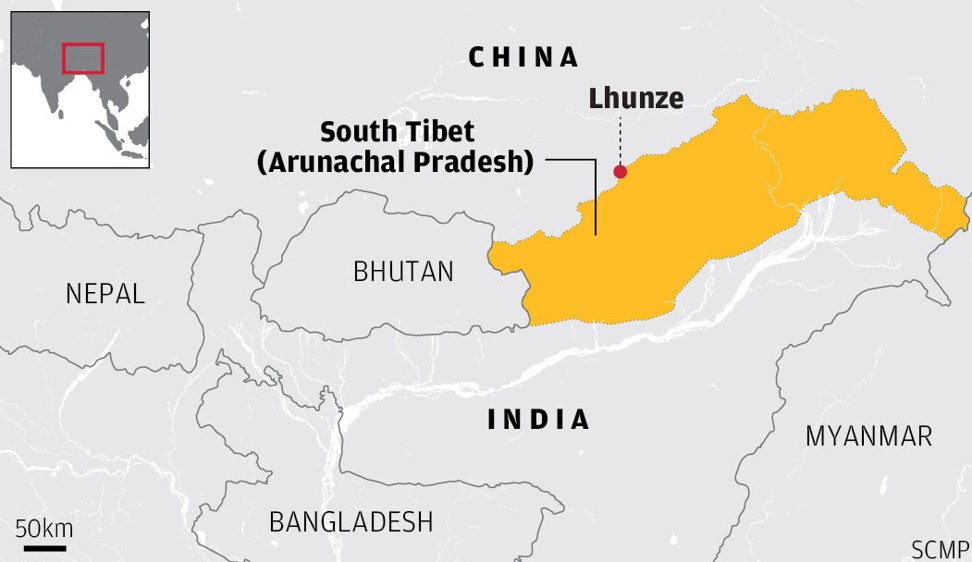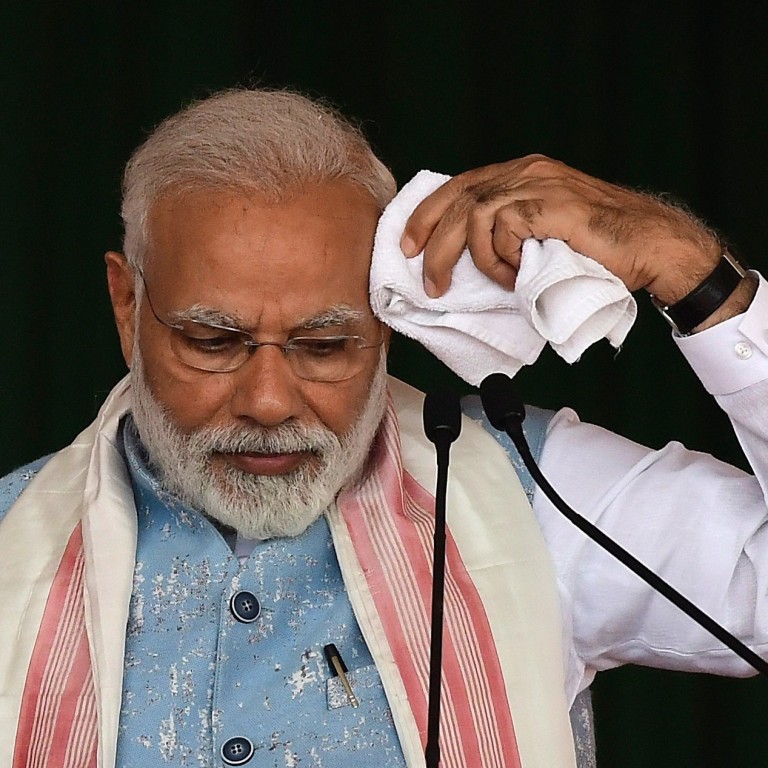
Why India is anxious about the role China could play in its upcoming elections
- Pro-Beijing sentiment appears to be on the rise among some discontented border communities in India’s northeast
- This combined with the potential for political upheaval in the polls has prompted New Delhi to go on a charm offensive
India’s foreign ministry was quick to respond with its own statement, referring to the state as “an integral and inalienable part of India” that the nation’s leaders visit “from time to time” as they might do with any other part of the country.
“This consistent position has been conveyed to the Chinese side on several occasions,” it said.
Both Modi and his foreign minister, Sushma Swaraj, were variously accused of being caught “snoozing” and misleading the nation about the situation on the ground.
India and China share more than a disputed border
Which is why, on Saturday, Modi made moves to allay any fears the state’s inhabitants might have about its future.
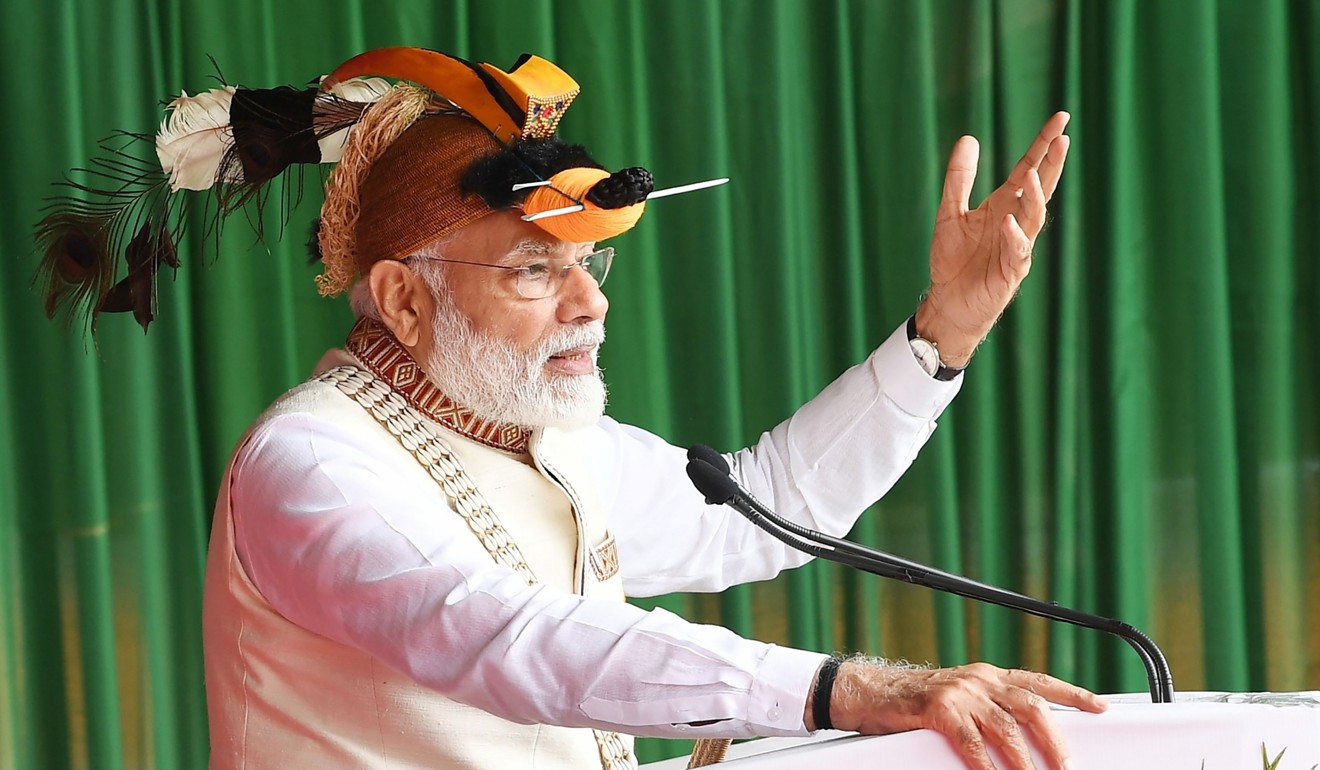
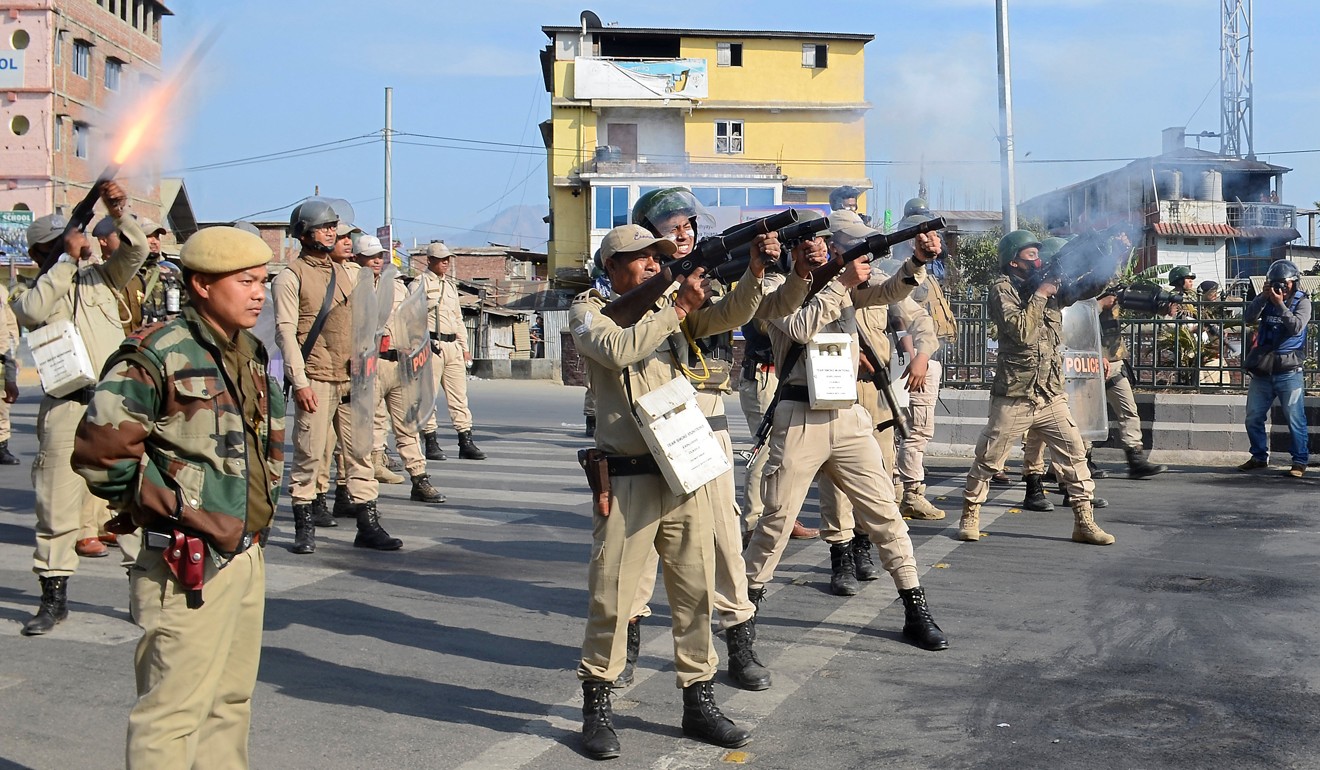
But New Delhi knows all too well the sway Beijing can hold over anti-India forces in the country’s far northeast.
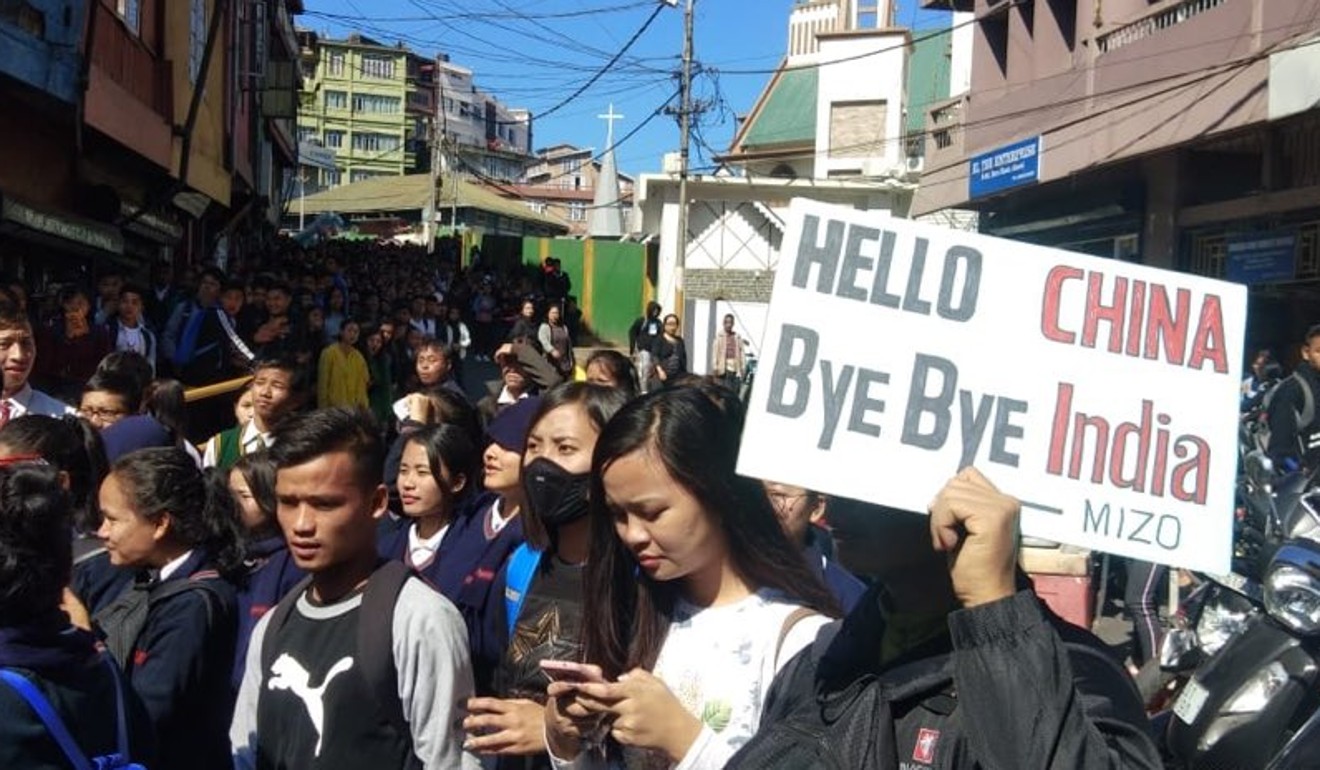
Protesters rallying against the bill in the northeastern states of Mizoram and Tripura could be seen holding placards bearing the slogan “Hello China, Bye Bye India” last month.
How Modi will counter such sentiments remains to be seen. But if his recent visits to Arunachal Pradesh, Assam and Tripura are any indication, he and his party are beginning to realise that with an election looming no later than May, they need to switch gears to damage control mode and rid themselves of the illusion that foreign policy can be entirely walled off from domestic politics.


